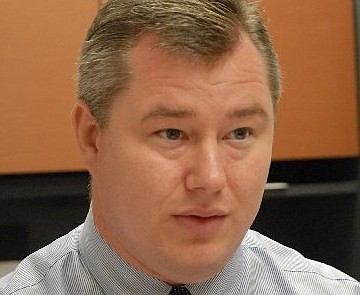CLEVELAND, Tenn. - Officials are looking for ways to increase the visibility and accessibility of Bradley County's environmental officer, who is responsible for investigating property upkeep, illegal dumping and meth lab quarantines.
On Monday, county commissioners and law enforcement officers discussed how to improve communications among the public, the Bradley County Commission and the Bradley County Sheriff's Department in regard to environmental officer investigations and other activities.
"I think the biggest complaint I've heard outside is accessibility," said Louie Alford, chairman of the commission.
Commissioner Terry Caywood said he had problems contacting the county's environmental officer and that at least four residents had called him with similar complaints.
Officials agreed to leave the environmental officer position within the sheriff's office after debating whether it would be best to place it directly under the authority of the County Commission.
The key to the resolution simply may be an organizational one, Chief Deputy Wayne Bird said.
Bird said the environmental officer position will be placed under the special operations division. The position now is part of the Criminal Investigations Unit and occupied by Detective Mike Hughes.
Deputy Rick Cope was named as a candidate for the position by Capt. W.G. Campbell, head of the special operations division.
"We feel like the public would have better access to him," Bird said. "Also, he's a uniformed officer driving a marked car. We feel like that presence would probably be more appropriate after discussing that with a couple [of commissioners] individually."
Leaving the environmental officer within the sheriff's office also would have the benefit of allowing that officer to assist with other law enforcement duties, if necessary, Commissioner Ed Elkins said. However, Elkins said it is critical that communications improve.
"The priority has to be on the enforcement of environmental situations and communicating the status of those problems to the County Commission," he said.
Campbell said that either he or the new environmental officer would attend one County Commission meeting each month. He also said efforts would be made to educate the public on how to contact the officer directly or through the special operations division.
The environmental officer transition process to Special Operations likely will take four to six months to complete, Campbell said.
Paul Leach is based in Cleveland. Email him at paul.leach.press@gmail.com.

